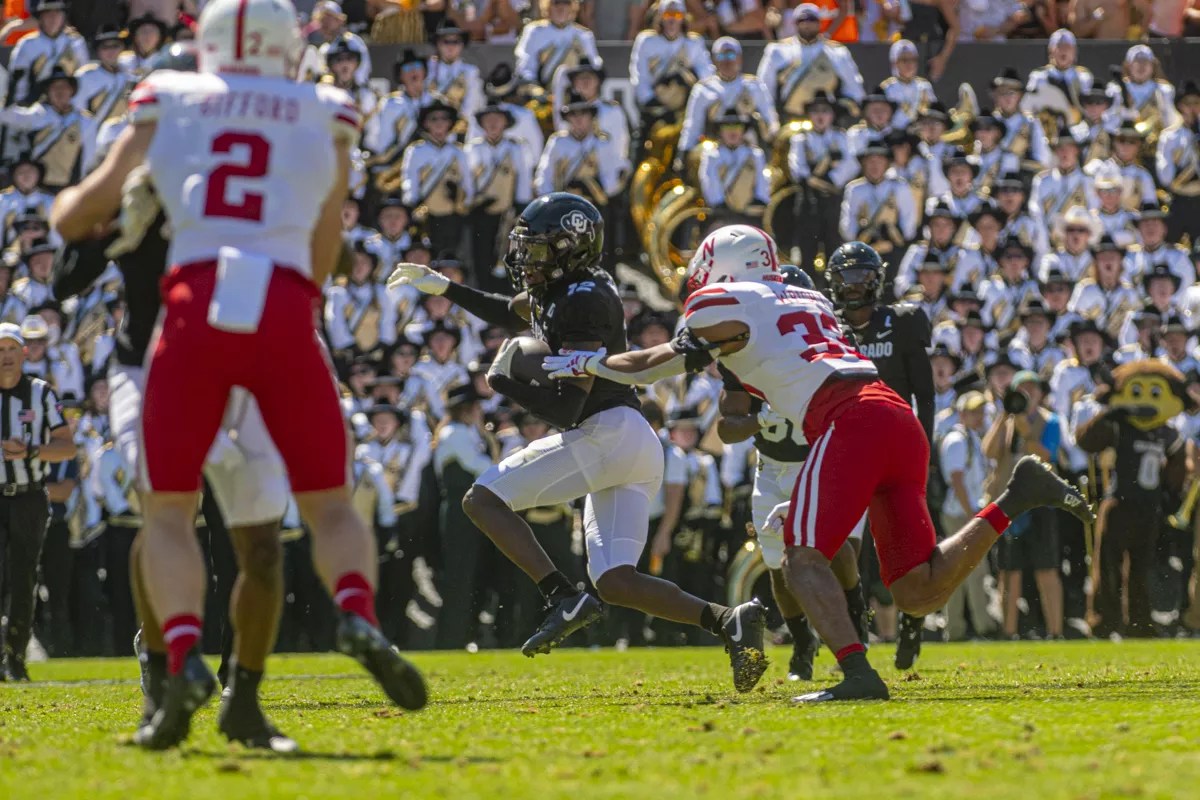
Evan Semón Photography

Audio By Carbonatix
Colorado colleges and universities will be allowed to make direct name, image and likeness (NIL) payments to student-athletes after the state legislature passed a bill removing a prohibition on universities entering directly into NIL contracts.
The names of students with those contracts and how much money each contract is worth will be exempt from the Colorado Open Records Act, despite an effort to amend the bill.
State Representative Lesley Smith and senators James Coleman and Judy Amabile sponsored House Bill 25-1041, which passed on March 14. The bill’s sponsors agreed with University of Colorado leaders who argued that forcing public institutions to disclose contracts would put them at a competitive disadvantage because private schools aren’t required to make such information public.
Bill sponsors also agreed with CU’s argument that athletes’ mental health could be at risk if the contracts were public.
“What we don’t want to do is set up these students for either being preyed upon because their image is worth a lot or being mocked because it isn’t,” Amabile said during a debate on the Senate floor on March 13.
The bill was opposed by free information advocates like the Colorado Freedom of Information Coalition, the Colorado Broadcasters Association and the Colorado Press Association.
Though an amendment added by the bill sponsors to require annual NIL spending reports be broken down by gender and sport passed, another amendment by Senate Minority Leader Paul Lundeen to require the amount of a contract be disclosed while keeping all other personally identifiable information redacted failed. The amendment didn’t pass in part because the sponsors were concerned contracts with high dollar amounts would be easily traceable to certain high-performing or highly publicized athletes.
“My perspective was, as these student-athletes are becoming professional athletes, we should, in fact, acknowledge that and engage with that in a meaningful, truthful, eyes-open way,” Lundeen said on March 13.
Lundeen eventually voted for the bill because he said the basic premise is needed, but four others voted no, including Senator Julie Gonzales of Denver. She said she was concerned that inequities in pay between athletes of different races and genders would be hidden by the bill’s transparency exemption.
According to Gonzales, the bill could conflict with a 2019 measure passed by the state legislature ensuring transparency around equal pay for equal work.
Coleman said the report required by the bill would allow insight into the balance, or lack thereof, between pay among genders. He also reiterated a common refrain from bill sponsors emphasizing that funds for NIL contracts will not be sourced from taxpayer dollars or a university’s tuition revenue.
Athletics are funded through an enterprise auxiliary, which generates revenue through ticket, merchandise sales and television rights that can be used for NIL payments.
“Although it’s not public funds, we still wanted to make sure that we were being transparent in the aggregate on funding coming out of all the teams and departments so that we could see if there was any inequity between how women and men sports were being paid,” Coleman said.
The bill passed by a 30-4 vote in the Senate; the House passed the bill by a vote of 59-5 in February. Now the measure heads to Governor Jared Polis for his signature.
Bill sponsors previously noted that the law needed to be implemented by April; the NCAA is set to settle several court cases related to NIL on April 9.
Along with allowing schools to directly pay athletes, the bill repealed a prohibition preventing athletes from signing contracts that conflict with those in place at the university, such as competing athletic apparel.